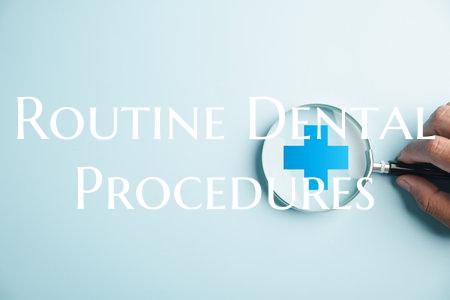
Routine Dental Procedures
Routine Dental Procedures: A Guide to Keeping Your Smile Healthy
Regular visits to the dentist for routine dental procedures are essential for maintaining good oral health and a beautiful smile. These routine procedures not only help in preventing oral issues but also aid in early detection and treatment of any potential problems. Let’s explore some common routine dental procedures that can help you keep your teeth and gums healthy.
1. Dental Cleanings: Professional dental cleanings are usually recommended every six months to remove plaque and tartar buildup that regular brushing and flossing may miss. A dental hygienist will use specialized tools to clean your teeth, followed by polishing to remove stains and make your teeth shine.
2. Dental Exams: During a routine dental exam, the dentist will thoroughly examine your mouth, teeth, and gums for signs of cavities, gum disease, or other issues. X-rays may also be taken to detect any hidden problems that may not be visible during a visual examination.
3. Oral Cancer Screening: Oral cancer screenings are often included in routine dental check-ups. The dentist will examine your mouth, tongue, throat, and neck for any signs of oral cancer. Early detection of oral cancer can greatly improve the chances of successful treatment.
4. Fluoride Treatment: Fluoride treatments are often recommended to strengthen the enamel of your teeth and help prevent tooth decay. Fluoride varnish or gel is applied to the teeth during a dental visit, providing an extra layer of protection against cavities.
5. Sealants: Dental sealants are thin coatings applied to the chewing surfaces of the back teeth to protect them from decay. Sealants are especially beneficial for children, as they can help prevent cavities in hard-to-reach areas of the mouth.
6. Fillings: If cavities are detected during a dental exam, the dentist will recommend getting fillings to restore the affected teeth. Fillings can be made of amalgam, composite resin, or other materials, and help to prevent further decay and restore the tooth's function.
7. Root Canal Therapy: When a tooth becomes infected or severely decayed, root canal therapy may be necessary to save the tooth. During a root canal procedure, the infected pulp is removed, and the tooth is cleaned and sealed to prevent further infection.
By staying up to date with routine dental procedures, you can prevent many dental problems and maintain a healthy smile for years to come. Remember to brush and floss daily, eat a balanced diet, and visit your dentist regularly to keep your teeth and gums in top condition. Your smile deserves the best care, so make routine dental procedures a priority in your oral health routine.